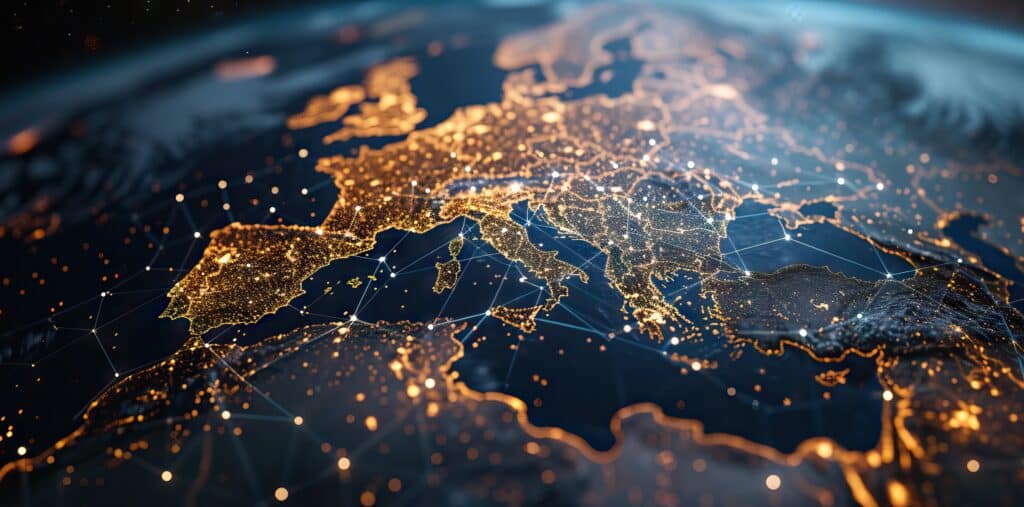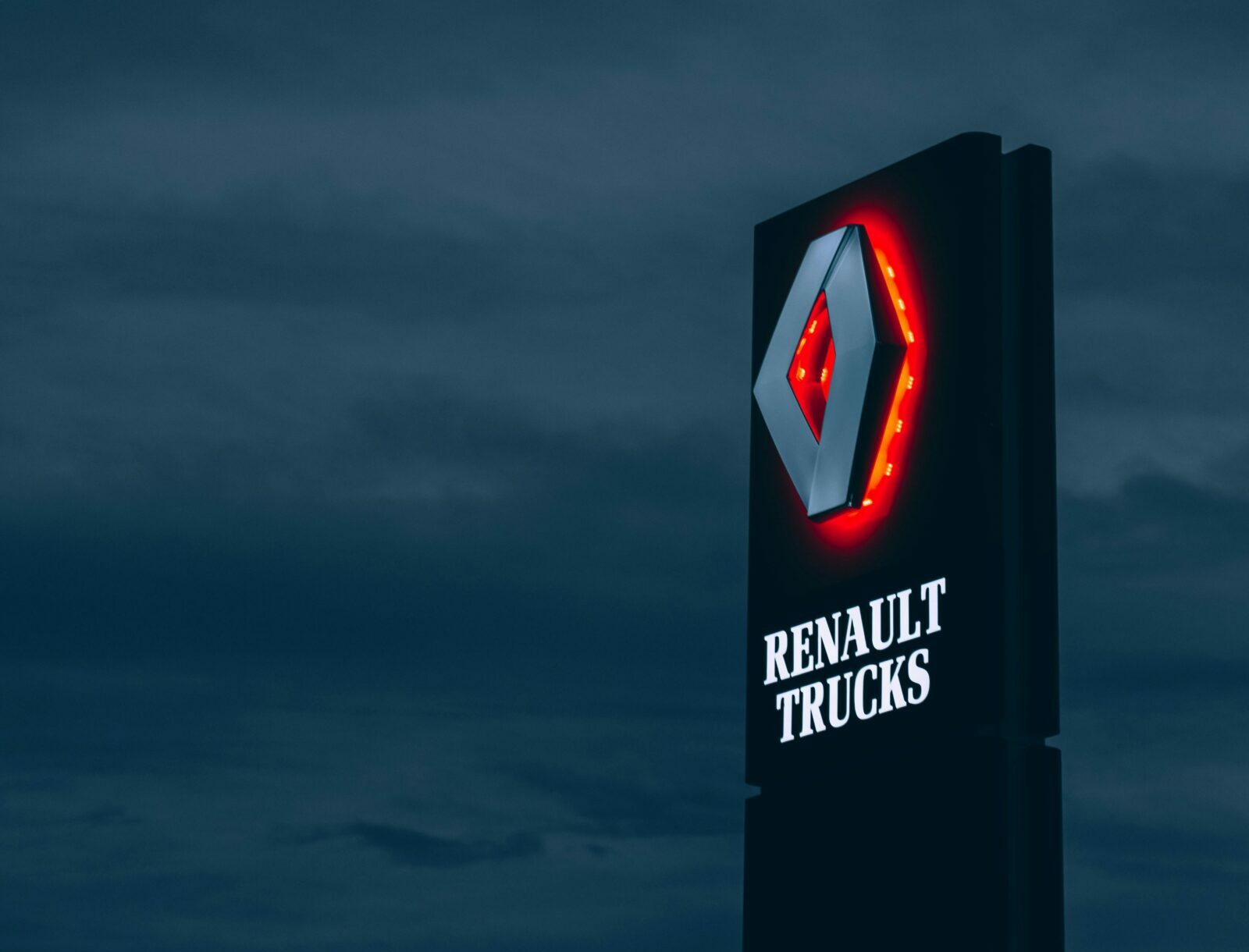Introduction to IoT in France
The Internet of Things (IoT) has transcended from a futuristic concept to a tangible reality, transforming the way we live and work.
With strategic initiatives and infrastructure investments, IoT has become deeply embedded in the nation’s economic fabric, carving out opportunities for innovation and efficiency across varied sectors.
This guide to IoT connectivity in France, the market growth trajectory, some influential use cases, and prominent challenges shows how one of the top IoT companies in France is paving the way for successful custom IoT solutions.
Keep reading to discover the ways France plans to stay ahead in the IoT revolution and transform Paris into one of the world’s most sustainable smart cities.
IoT in France: A Market with Momentum
The projections for the IoT market in France are impressive.
The widespread adoption of IoT applications within France has led to the country’s market being expected to amass a revenue of US$25.17 billion by the close of 2024, with an anticipated annual growth rate of 10.51% leading to a market volume of US$37.54 billion by 2028 (Statista, 2024).
In 2024, the Industrial IoT sector is poised to dominate, projected to reach a market volume of US$8.30 billion in 2024, a testament to the nation’s prowess in harmonising industrial processes with cutting-edge IoT technology (Ibid).
The automotive industry is another key component of the French IoT market, with connected cars and autonomous driving technology leading the way.
Paris Smart City 2050: Sustainable IoT Solutions
Despite Paris being ranked as the third smartest city in the world (behind London and New York), the city’s ambitions are not bound by its current ranking (smartcitiesworld.net, 2024).
Paris has set its sights on becoming the smartest city in the world by 2050, with a strong emphasis on sustainability and quality of life for its citizens.
To achieve this, Paris is leveraging IoT solutions in areas such as energy management, transportation, waste management, and public safety as part of its 2050 strategy.
The famed ‘Paris Smart City 2050’ project by Vincent Callebaut Architectures envisages a verdant cityscape intertwined with high-tech towers, each designed to address urban challenges exacerbated by climate change.
Across the urban domain, these IoT-enabled edifices aim to purify the air, control smog, and recalibrate the city’s energy consumption. The amalgamation of aesthetic appeal with outright functionality signifies a forward-thinking approach that is characteristic of French IoT innovation.
Eight ‘towers’ function as beacons designed to help combat climate change. They include:
- The ‘Mountain Towers‘ aim to control smog and increase urban density by creating bioclimatic mountains that incorporate renewable energies like photovoltaic and thermal solar shields, hydro-electrical pumped storage stations, and green balconies.
- The ‘Antismog Towers’ plan to breathe new life into the Petite Ceinture’s railway lines by integrating depolluting structures to cleanse atmospheric smog and includes community food gardens and various renewable energy sources for a greener urban landscape.
- The ‘Photosynthesis Towers’ seek to transform the Montparnasse Tower into a vertical Central Park, complete with suspended gardens of green algae bioreactors, thermal and photovoltaic solar panels, and a phyto-purification lagoon.
- The ‘Bamboo Nest Towers’ aim to revitalise the Massena area with towers enveloped in a bamboo bio-mesh, offering vertical food gardens, orchards, and renewable energy sources.
- The ‘Honeycomb Towers’ aim to boost affordable housing solutions by constructing towers featuring vegetable gardens and suspended orchards, powered by rooftop solar panels and self-sufficient public lighting.
- The ‘Farmscrapers Towers’ aim to create vertical urban farms, integrating agriculture fields and renewable energy sources for fresher air and reducing the ecological footprint.
- The ‘Mangrove Towers’ draw inspiration from mangrove trees to create towers that can produce electricity by electrolysis and improve the surrounding air quality.
- The ‘Bridge Towers’ project aims to construct green inhabited bridges for a more sustainable entry into the city.
IoT sensors will be used to monitor air quality, energy consumption, and waste management systems in these futuristic towers. By implementing these innovative solutions, Paris is poised to become a global leader in the trajectory towards sustainable smart cities.
In turn, these innovative prototypes will combine bioclimatism and renewable energies to help inspire and create a green, connected, and sustainable Paris.
Sector Spotlight: IoT Integration in Key French Industries
French industries have embraced the Internet of Things with alacrity, leveraging its potential to usher in operational excellence.
The automotive sector, for instance, is undergoing a significant metamorphosis, with advancements such as Vehicle-to-Everything (V2X) communication and ADAS systems spearheading safety and efficiency enhancements.
Similarly, the healthcare and energy sectors are witnessing a paradigm shift.
IoT devices are empowering healthcare professionals with real-time patient insights and precise diagnostics, while the energy industry benefits from IoT’s capability to streamline distribution and monitor consumption.
The smart cities domain, particularly transportation, stands out with innovative traffic management systems that optimise the urban commute. IoT’s intervention here not only reduces the environmental footprint but also ensures smoother urban flow.
Networks and Connectivity: The Lifeline of French IoT Applications
The heart of any IoT infrastructure is connectivity, and in France, this realm is characterised by a dynamic interplay of networks.
Sigfox and LoRaWAN are important aspects of low data, long battery connectivity, offering low-power sensor solutions for IoT applications such as environmental monitoring.
Bluetooth, Wi-Fi and cellular IoT networks follow closely. While Bluetooth excels in very short-range applications, Wi-Fi offers robustness in bandwidth, and cellular networks present a universal and ubiquitous solution for global connectivity.
The emergence of LTE-M and NB-IoT networks with a 7% adoption rate signifies a forecast for the enhanced lower power cellular IoT technologies are beginning to compete with LoRaWAN and Sigfox. These technologies are designed to bridge the gap for applications that may require a fuller spectrum of IoT functionalities while optimising power consumption.
The Road Ahead: Challenges and Opportunities in French IoT
With every leap in innovation comes unique challenges that must be overcome.
The French IoT ecosystem is no exception, grappling with issues, such as data security, interoperability, and privacy concerns. The diversity of IoT devices necessitates standardised protocols and stringent regulation, an aspect that continues to evolve.
To combat these IoT challenges, businesses utilising IoT technology in France must adopt a holistic approach, prioritising security and compliance.
By encrypting data, implementing secure network connections, and maintaining regulatory compliance, IoT businesses can safeguard their operations against potential cyber threats.
The opportunities presented by IoT in France are varied. As industries continue to embrace the technology, it is expected that the market will experience significant growth in the coming years.
With the French government’s continued support and investment in IoT initiatives, France is well-positioned to lead the way in sustainable, connected solutions for a better future.
Caburn Telecom: Redefining Global IoT Solutions
Positioned at the helm of the global IoT movement, Caburn Telecom stands as an industry leader in bespoke IoT solutions.
With a keen understanding of the French and wider European market dynamics and an extensive portfolio of global IoT services, Caburn Telecom is the partner of choice for businesses seeking a competitive edge.
Being one of the best global IoT connectivity providers, our tailored approach to IoT equips organisations with the tools to optimise processes, expand market reach, and bolster operational resilience.
Using the best IoT and M2M SIM cards for France and the rest of the world, we consistently provide a bespoke connectivity solution centred around our client’s specific needs, with the agility to adapt and evolve in an ever-changing environment.
We work with a diverse network of partners to ensure our clients receive the most efficient and dependable IoT connectivity services. Our team of experts provides end-to-end support, from initial consultation to deployment and ongoing maintenance.
Our client base spans various industries, including automotive, healthcare, energy, and smart cities. Our solutions are deployed in regions and cities leading the IoT sector, such as in Singapore and Germany.
Leveraging Caburn Telecom’s expertise, enterprises can chart a course towards a smarter, more efficient future.
Concluding Thoughts: Accelerating IoT Adoption in France
The narrative of IoT in France is one of rapid evolution and promise.
From its progressive smart city projects to its deeply entrenched industrial IoT applications, France is a fertile ground for all things IoT.
As the market surges and enterprises adapt, the constructive collaboration between technology and industry paves the way for a more interconnected, intelligent ecosystem.
For businesses looking to thrive in the IoT era, the key is agility. Adapting swiftly to technological shifts and harnessing data insights effectively will be pivotal in unlocking IoT’s full potential.
Discover how your business can elevate its IoT capabilities with Caburn Telecom.
Let us build a smarter and more connected future together! Contact us today.



